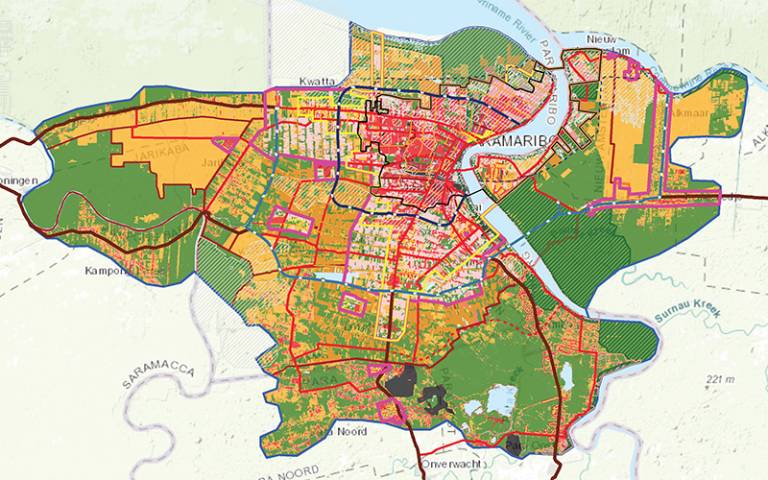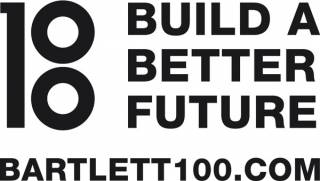Climate change and urban planning in the Caribbean: Planning for sustainability
28 February 2019, 5:30 pm–7:00 pm

Event Information
Open to
- All
Organiser
-
Julio Davila
Location
-
DPU Room 10134 Tavistock SquareLondonWC1H 9EZ
Dialogues in Development
This talk focuses on the challenges arising from a professional consultancy engagement between 2012 and 2016 in designing ‘sustainable growth city scenarios’ for the Caribbean cities of Nassau (The Bahamas) and Paramaribo (Suriname), in the context of the Emerging Sustainable Cities Program of the Inter-American Development Bank. The terms of reference involved imagining development scenarios, policy recommendations and concrete actions (projects) that could render each city more capable to better withstand the consequences of climate change, particularly through adaptation. The sustainability of said scenarios had to be demonstrated, amongst others, against ‘trends’ or ‘business as usual’ growth scenarios.
The talk outlines the conceptual framework underpinning the consultancy work (what is a sustainable city?), the approach utilized to guide the design process (how to ‘build’, ‘map’ or ‘represent’ the sustainable city), and findings along the process that could (arguably) steer development, through policy and governmental action, in a direction of ‘sustainability’. The talk concludes with some lessons learned about the process.
Speaker Biography
Arturo Samper is a Colombian and Canadian architect and city planner with a degree from Uni-versity of Los Andes in Bogotá, and Master of Architecture and Master of City Planning at Penn University. He attended this prestigious university with scholarships from the Fulbright Commission and the Encyclopaedia Britannica. Mr. Samper is member of the Colombian So-ciety of Architects and the Royal Architectural Institute of Canada.
For 23 years, Mr. Samper has been directly engaged in the design and implementation of urban and regional planning and development policies, programmes and projects in the continental Americas, the Caribbean, and Africa (Mozambique). He has practiced both as a senior planner and policy maker in the Colombian and Canadian governments, as well as a consultant to inter-national organizations such as the Canadian International Development Agency, the Inter-American Development Bank (IADB), USAID, and the World Bank. His professional activi-ties have focused on:
(i) Designing regional and/or metropolitan land development policies, land use plans and programmes, including urban design projects down to the neighbourhood and block level.
(ii) Designing, promoting, and/or implementing land administration reform, most notably through the application/articulation of land management instruments for an agile land and real estate markets. This includes expertise on land cadastres, land banking, land re-adjustment, transfer of development rights, right of first refusal, and others.
(iii) Assessing, assisting and/or advising city or regional governments towards moderniza-tion, through work-flow mapping and analysis, process re-engineering, and client-oriented service delivery.
Since 2010, notably for the IADB’s Emerging and Sustainable Cities Initiative, in collaboration with the British firm of ERM, Mr. Samper has designed intelligent urban growth scenarios at the metropolitan level for the cities of Cochabamba (Bolivia), Managua (Nicaragua), the North-ern Development Corridor of Haiti (Cap Haitien to Ouanaminthe, which includes 5 different cities), Nassau (The Bahamas), and Paramaribo (Suriname). These scenarios are highly precise map and policy constructs reflecting the most convenient urban development responses to natu-ral hazards in the context of climate change, the protection of natural and cultural assets, and the protection and promotion of agricultural and industrial settings essential for the economic stabil-ity of the region/city.
 Close
Close


